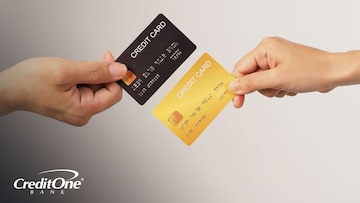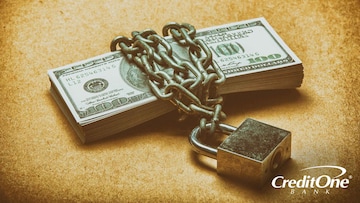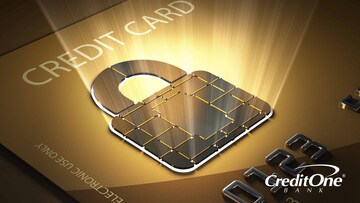
What Is a Secured Credit Card and How Does It Work?
September 23, 2024
A secured credit card is easy to obtain and can substantially improve your credit score when used correctly. However, it is important to understand how they work and how to use them before you proceed.

In this article:
A secured credit card could be a good alternative to an unsecured card if you’re new to credit or trying to improve a poor credit history and are unable to qualify for an unsecured card. It can help you learn how to use credit wisely while building or rebuilding your credit.
Definition
A secured credit card is a credit card that requires you to put down a deposit for collateral. They are typically easier to obtain than an unsecured credit card, but the credit limit is usually equivalent to your deposit. Usually, the purpose of a secured credit card is simply to build credit.
Issuers of secured credit cards typically report your payment history to the three major credit reporting agencies each month. If you can’t qualify for an unsecured card, a secured credit card could help you establish a solid credit history or rebuild one that’s taken a few hits over the years. But only if you use it responsibly. It is also important to note that due to the Fair Credit Reporting Act, you can monitor your credit by getting a free credit report once every 12 months.
How Does a Secured Credit Card Work?
To get a secured credit card, you’ll need to complete an application just like you would for any other loan or line of credit. If your application is approved, you’ll typically be required to make a refundable deposit that will be used as collateral on the account.
In general, the deposit amount will be equal to the credit limit of your card. The amount you’re required to deposit varies based on the card issuer and your credit history. Some card issuers may increase your credit limit after several months of on-time payments.
After you receive your card, you can use it to make purchases up to the amount of your credit limit. At the end of each billing cycle, you’ll receive a statement with your total balance and the minimum payment amount due. When you receive your bill, you have until the due date to pay it and keep your account in good standing. If you don’t make your payments, the card issuer will apply the deposit to any outstanding monies owed.
Secured Credit Cards vs. Unsecured Credit Cards
When you think of credit cards, you probably think of the unsecured variety. Unlike a secured card, an unsecured credit card does not require any collateral. This is because, based on an applicant’s credit history, credit score, income, and other factors, the card issuer has determined the applicant is likely to pay them back for purchases made without the added security of a cash deposit.
Because they’re not backed by collateral, unsecured cards are generally more difficult to obtain than secured cards. But if you do qualify for an unsecured card, you’ll usually have a higher credit limit than you would with a secured card.
Benefits of a Secured Credit Card
The benefits of a secured credit card include:
Monthly reporting to the major credit bureaus
Relatively low fees
Typically refundable deposit
Opportunities to graduate to an unsecured credit card
All of these benefits contribute to a secured card's greatest benefit: offering the opportunity to establish or rebuild credit with relative ease.
Drawbacks of a Secured Credit Card
The drawbacks of a secured credit card include:
Few rewards
Required security deposit
A credit limit that is typically equal to your deposit
Typically, a secured credit card is simply a stepping stone toward an unsecured credit card, as it offers little beyond the opportunity to establish or build credit.
How To Use a Credit Card To Build Credit
Your payment history is one of the most important factors used in credit scoring models to calculate your credit scores. Be sure to make your payments on time every month. Late and missed payments could negatively impact your scores.
Your credit utilization ratio is the amount of credit you have available compared to the amount you’re actually using. It’s also included in credit score calculations, and keeping it low — typically below 30% — is important. This can be tough with a secured card since they typically have low credit limits. If you’re approaching your credit limit, consider making payments to the credit card company throughout the month instead of waiting until you receive your statement at the end of the billing cycle. This could help to keep your credit utilization low.
Graduation Programs
Some credit card issuers have programs that give you an opportunity to “graduate” to an unsecured card and have your security deposit returned to you after you make a certain number of payments on time. If this is important to you, ask your card issuer if they have such a program before applying for their secured card. If they don’t have such a program, know that a solid credit history built with their secured card should still make you more attractive to other card issuers when it comes time to apply for an unsecured credit card.
While an unsecured card may be preferable because you don’t have to tie up cash to get one, a secured card can be a good option if you simply don’t qualify for an unsecured credit card. The good news is, with responsible use of a secured card today, you should be able to improve your chances of qualifying for an unsecured card in the future.
Which Banks Have Secured Credit Cards?
Many major banks offer secured credit cards. As of 2024, these included:
Bank of America
Capital One
Citibank
Discover
PNC Bank
Truist Bank
U.S. Bank
USSA
Wells Fargo
However, this is far from a complete list of the many banks and credit unions that offer secured credit cards.
Should I Get a Secured Credit Card?
When considering whether to get a secured credit card, you should consider several things, such as:
How good is my credit?
What options does my bank or credit union offer?
What credit cards can I qualify for?
What are my long-term goals for building credit?
How much money do I have available for a security deposit?
What other options for building credit are available to me?
Typically a secured credit card is a good option for someone who needs to establish credit or rebuild poor credit, and who has spare funds for a security deposit. If you’d like a credit card designed to help you build your credit score when you make timely payments each month, see if you pre-qualify for an offering from Credit One Bank, including a secured card.



